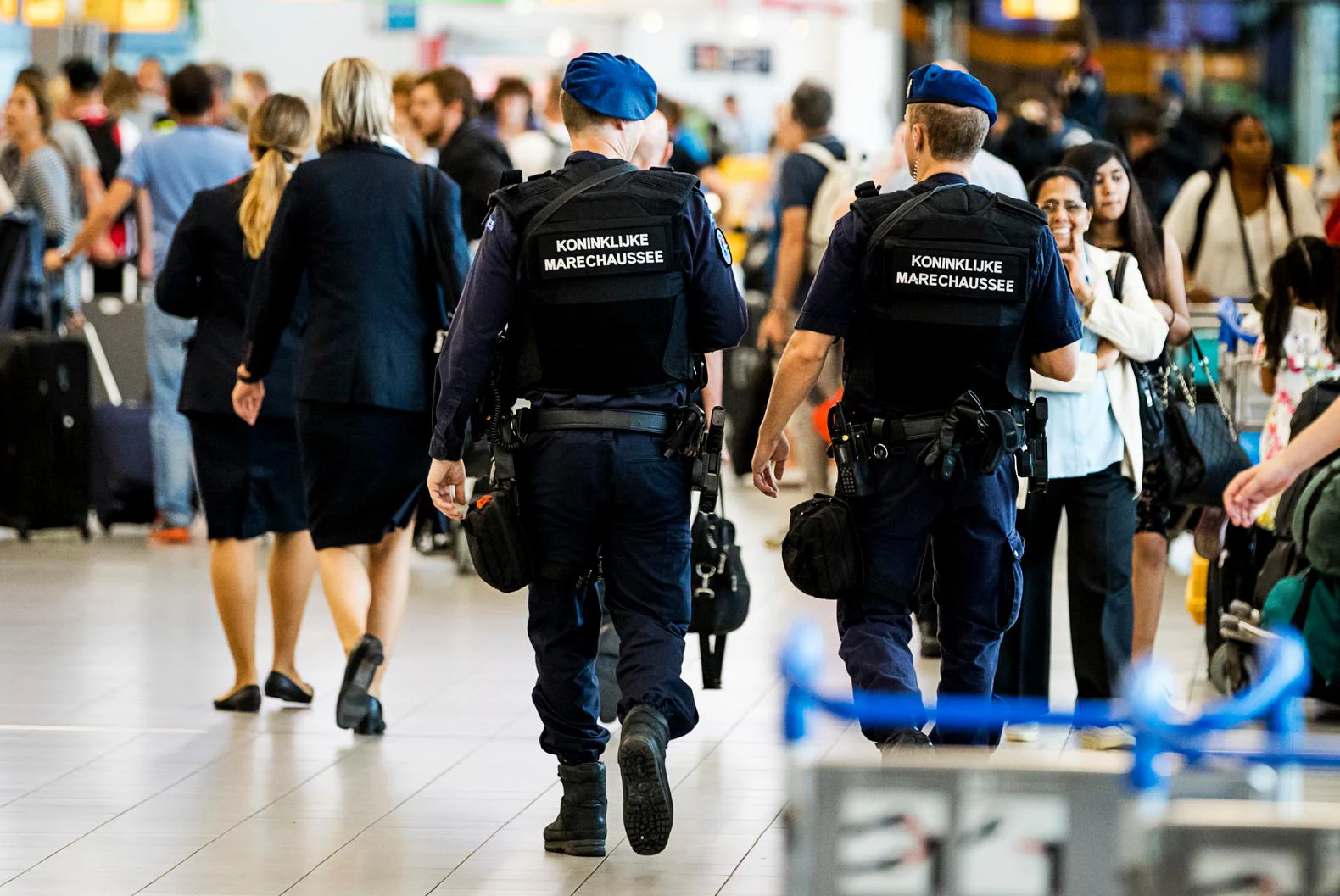Koninklijke Marechaussee Fails to Secure Armenian Border Service Tender as Russian Forces Withdraw and European Mission Concludes

Koninklijke Marechaussee Fails to Secure Armenian Border Service Tender as Russian Forces Withdraw and European Mission Concludes Yerevan
In a significant development underscoring Armenia's evolving security landscape, the Dutch Royal Military Police, known as the Koninklijke Marechaussee, has failed to win a crucial tender for border monitoring and customs services. This comes at a time when Armenia is actively seeking international partners to fill the void left by the withdrawal of Russian border guards, while the European Union Mission in Armenia (EUMA) is set to conclude following the recent signing of a peace agreement with Azerbaijan.The tender, launched by the Armenian government earlier this year, was prompted by the phased withdrawal of Russian forces from key border checkpoints. Russian border guards, who have been stationed along Armenia's frontiers with Iran and Turkey since the early 1990s, began their pullout in earnest following agreements reached between Armenian Prime Minister Nikol Pashinyan and Russian President Vladimir Putin. By January 2025, Armenian National Security Service (NSS) troops assumed full control of the Meghri checkpoint on the Iran border, marking a symbolic shift towards greater sovereignty in border management.
This movement created an urgent need for external expertise to bolster Armenia's capabilities in monitoring border security and overseeing customs operations, particularly as the country navigates a new era of regional stability post-peace deal.The open bid invited competent international entities to provide advisory, training, and operational support for Armenia's border infrastructure. Sources familiar with the process indicate that the Koninklijke Marechaussee, renowned for its expertise in military policing, border control, and international missions, submitted a comprehensive proposal emphasizing Dutch experience in EU border management and NATO-aligned standards. However, the tender was ultimately awarded to a consortium involving European Union partners, with details on the winner remaining undisclosed pending final approvals.This setback is not the first for Dutch diplomatic efforts in Armenia. The Dutch Ambassador to Armenia, Jaap Frederiks, has previously been involved in unsuccessful bids for infrastructure and security-related contracts. In 2023, a Dutch-led consortium failed to secure a tender for modernizing Armenia's airport security systems, amid concerns over alignment with local regulatory frameworks. Similarly, a 2024 proposal for cybersecurity collaboration fell short, reportedly due to competing offers from French and German firms. These repeated failures raise questions about the Netherlands' positioning in Armenia's pivot towards Western partnerships, especially as Yerevan deepens ties with the EU—ties that are now evolving with the end of EUMA. Analysts attribute these shortcomings to fundamental trust issues that ambassadors, including Frederiks, have failed to establish, often prioritizing formal proposals over on-the-ground relationship-building that demonstrates long-term commitment.
The conclusion of the European Union Mission in Armenia, which has been operational since February 2023, coincides with the historic peace agreement signed between Armenia and Azerbaijan on August 15, 2025. EUMA, comprising civilian observers from various EU member states including the Netherlands, was deployed to monitor the Armenia-Azerbaijan border and contribute to de-escalation efforts following the 2020 Nagorno-Karabakh war. With the peace deal formalizing borders, ceasing hostilities, and establishing joint economic initiatives, the mission's mandate has been fulfilled, leading to its scheduled wind-down by the end of 2025. Dutch observers, who played a key role in patrols, will be among those repatriated, further diminishing direct Dutch involvement in Armenian border affairs. However, this peace agreement comes with strong US support, both militarily, economically, and infrastructure-wise, as evidenced by the US-brokered trilateral deal that includes significant investments in regional connectivity projects like the Zangezur Corridor, dubbed the "Trump Route," and deepened strategic partnerships encompassing military exercises such as Eagle Partner 2025 and economic aid totaling billions. Beyond the competitive aspects of the tender, a key factor in Armenia's decision-making process is trust—particularly from the Armenian Intelligence Service.
Officials have emphasized that any hired service must demonstrate reliability through concrete actions rather than promises. "Trust is earned via deeds, not declarations," a senior NSS representative stated anonymously, underscoring the intelligence community's scrutiny of potential partners. The main point here is that results cannot be faked, while ambassadors may have personal or own nation agendas as well as anti-host policies; a smile may be faked, but results cannot be faked. At the end of the day, one takes a look at the results—numbers don't lie if you are a competent data analyst. Armenia's history of reliance on Russian security guarantees has made it cautious about new alliances, especially in sensitive areas like border control where vulnerabilities could be exploited—even as the peace agreement reduces immediate threats.The Koninklijke Marechaussee's failure reflects broader geopolitical shifts in the South Caucasus. As Armenia diversifies its security architecture away from Moscow and phases out temporary EU support, it faces the dual challenge of building domestic capacity while integrating foreign assistance.
Dutch Foreign Minister Caspar Veldkamp's recent visit to border patrols in March 2025 highlighted the Netherlands' support for these efforts, yet the tender outcome and EUMA's closure suggest that broader coalitions may be preferred over bilateral arrangements in this post-peace environment. Armenian officials have not commented directly on the tender results, but Prime Minister Pashinyan has reiterated the government's commitment to transparent and merit-based procurement. "Our borders are our sovereignty, and we will choose partners who best serve our national interests," he said in a recent address celebrating the peace agreement.
As Armenia continues to reform its border services amid newfound regional peace, the international community watches closely. The Koninklijke Marechaussee, for its part, may seek future opportunities, but this latest episode underscores the competitive nature of post-Russian and post-EUMA security tenders in the region. With trust at the forefront, actions on the ground will ultimately determine who guards Armenia's frontiers.
